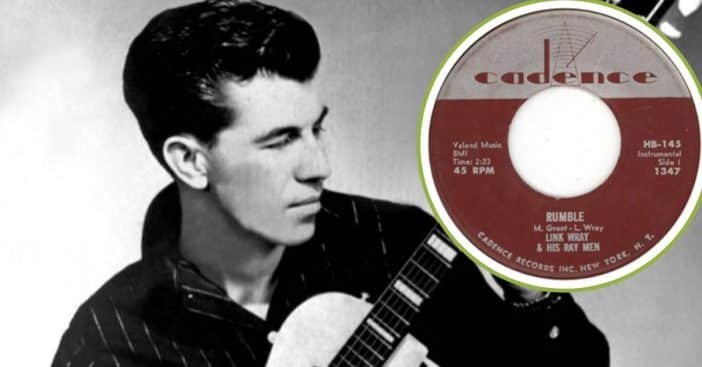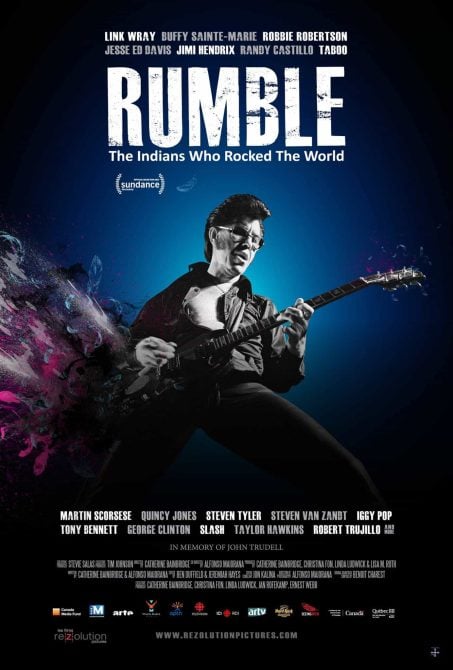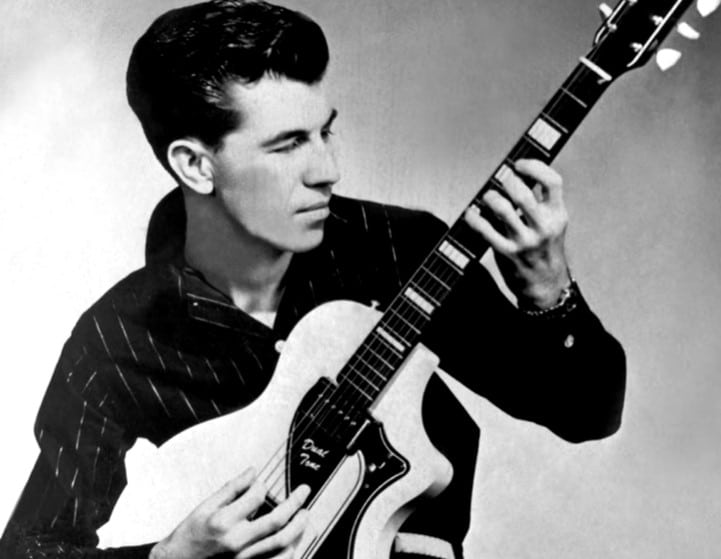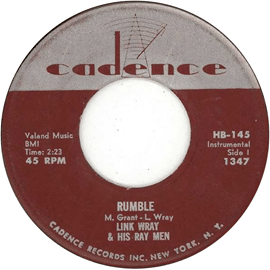
Rock ‘n’ Roll began making waves in the mid-1950s, although Dean Martin, Perry Como, and Nat King Cole still owned the airwaves with their soft, romantic music. By the late ‘50s, everyone was tuning in to rockers Elvis Presley, The Champs, and Link Wray’s “Rumble.”
“Rumble” became a 1958 hit song despite having no lyrics, and it was more common among younger people. According to Wray’s words during a 1984 interview, the song was unpopular among older folks who regarded it as garbage, with parents freaking out over it as well.
Why was the song ‘Rumble’ banned?

“Rumble” sounded raw, cool, and somewhat dangerous due to its intense instrumentals and heavy metal vibe. It starts off cool and “slinky” until the rhythm changes towards the middle, adding a punk-like vibe and distortion towards the end. Rolling Stone described the song as having “ragged, ominous chords, overdriven and dragged to a crawl,” which “sounded like an invitation to a knife fight.”
RELATED: Mariah Carey Sends Flowers To Brenda Lee After Christmas Classic Dethrones Her Song

Regulatory bodies feared that Wray’s hit track would incite gang violence and anxiety in the younger population, hence the need to ban it. Even Wray admitted that kids went “ape” when he played it for the first time at a 1957 dance in Fredericksburg, Virginia. He had made a fuzzbox by punching holes in the speaker of his guitar amp to create unique, unsettling sounds.
The name “Rumble” originated from the circumstances surrounding the song’s creation. A fight broke out while Wray was playing live, and rather than stop, he incorporated the background ruckus into the music as if to make fun of the ongoing tussle. The audience thought it was awesome and asked him to do it again, hence his inspiration to make it a track and name it after that night’s violent event.

The Library of Congress’ critic and curator Cary O’Dell termed Wray “the father of distortion and fuzz, the originator of the power chord and the godfather of metal.” His controversial sound inspired singers like Jimmy Page and Iggy Pop, who credit his music career to it. Wray released another song, “Rawhide,” the following year; however, despite not being allowed on mainstream media at the time, “Rumble” surpassed with over a million copies sold.
